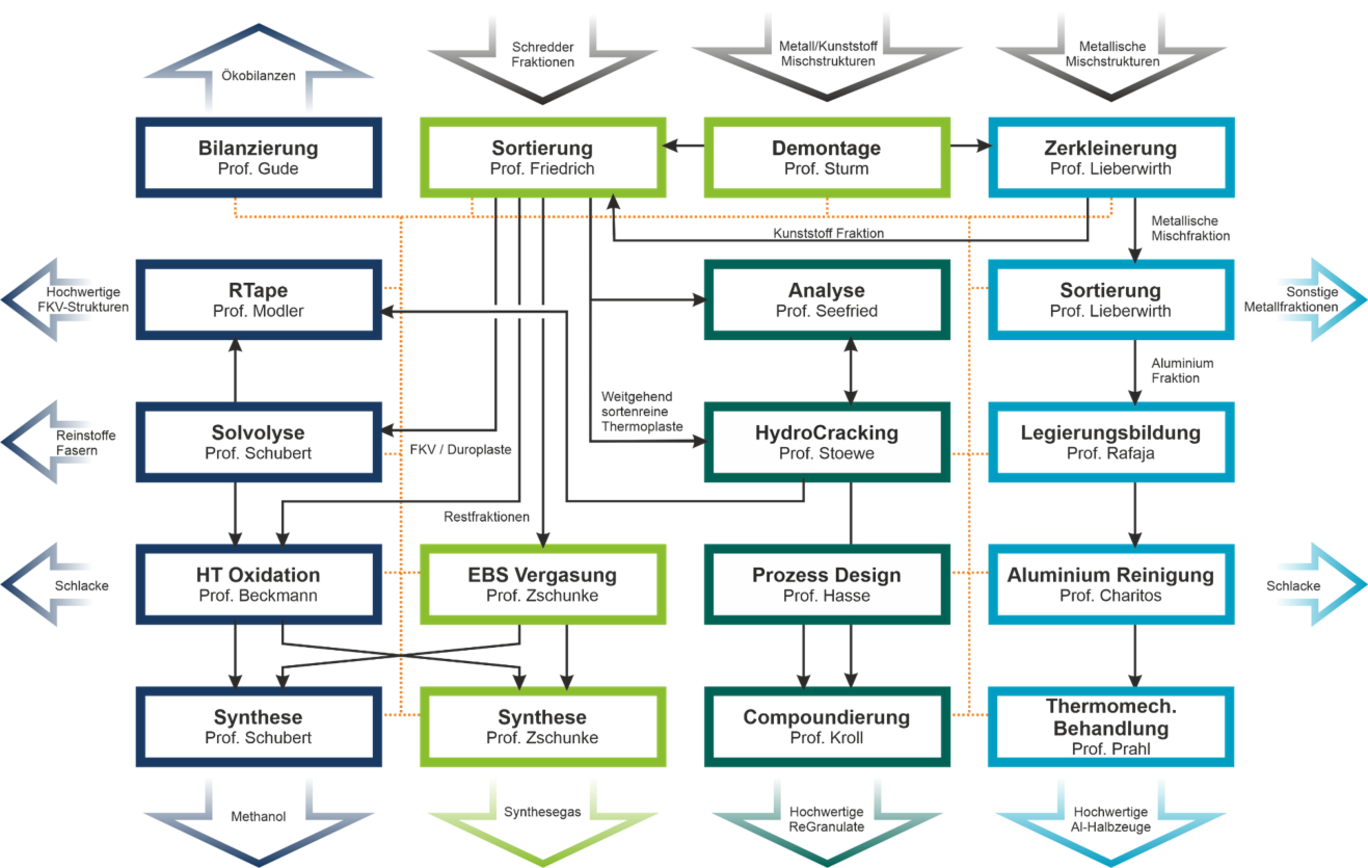
The fields of chemistry, process engineering and mechanical engineering must work together synergistically in order to keep product parts and components in the cycle. The CIRCECON project has dedicated itself to this challenging integration task. This commitment sets it apart from other circular economy projects. The Zittau/Görlitz University of Applied Sciences (HSZG) is contributing its many years of expertise and special problem-solving skills to the network, particularly in the mechanical sorting of residual material mixtures. However, this is only part of its contribution.
The Zittau/Görlitz University of Applied Sciences (HSZG) is a research-intensive university of applied sciences in the region, whose roots lie in the "Energy University" and which has repeatedly devoted itself to the current issues of the time over the decades. In 1992, the social sciences were added to the engineering sciences, as it was recognized that numerous transformation processes cannot be mastered technically alone. As a result, the field of research and study at the HSCG has continuously changed and adapted, integrating issues from the areas of society and business.
The necessary step from the linear production chain to cycles was also recognized at an early stage, taken into account in teaching and research at the HSZG and already tested on site on a laboratory and pilot scale. The CIRCECON project is now creating the opportunity to concentrate future research and development activities at a globally unique technology pool for the circular economy at the Schwarze Pumpe Industrial Park. The HSZG is focusing in particular on dismantling, sorting and thermal conversion and is working closely with colleagues from the technical universities in Chemnitz, Dresden and Freiberg.

The content of the three key research areas of the HSZG is defined as follows:
The economic, ecological and social effects are evaluated in all of this.

CIRCECON thus brings together researchers from a variety of specialist disciplines who work together on an interdisciplinary basis. In addition, close links are to be established with the technical universities in order to realize a holistic location concept. At the HSZG, all the threads come together with Prof. Zschunke, who is contributing his experience as Institute Director and former Vice-Rector for Research.

Here you will find all the dates on which we present the CircEcon project to the public.
at the Zittau/Görlitz University of Applied Sciences
Organized by the IHK Dresden, the Allgemeiner Unternehmerverband Zittau und Umgebung e.V., the Zittau/Görlitz University of Applied Sciences & the Dresden Chamber of Skilled Crafts
at the Juliet-Curie-Gymnasium Görlitz
at the Zittau/Görlitz University of Applied Sciences
organized by the Hoyerswerda Education Coordination Office
Presentation of the keynote speech by Prof. Dr.-Ing. Niels Modler: "The CircEcon research factory - Saxon scientists in Lusatia for the circular economy"